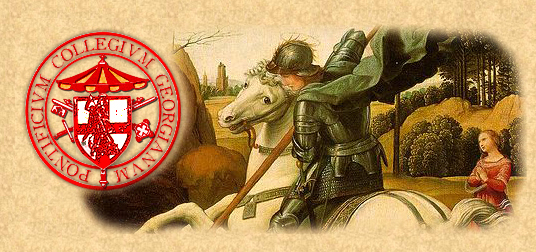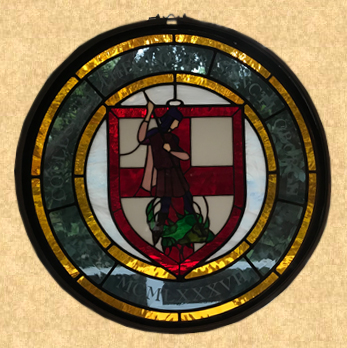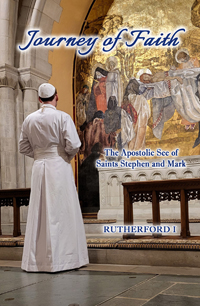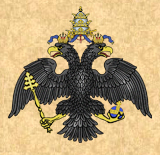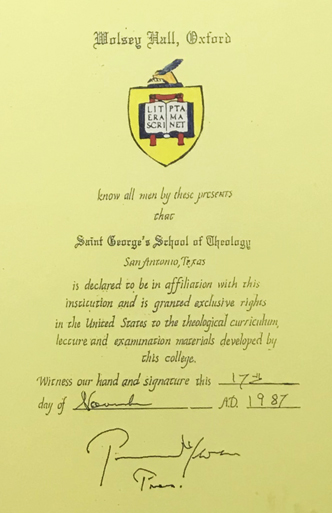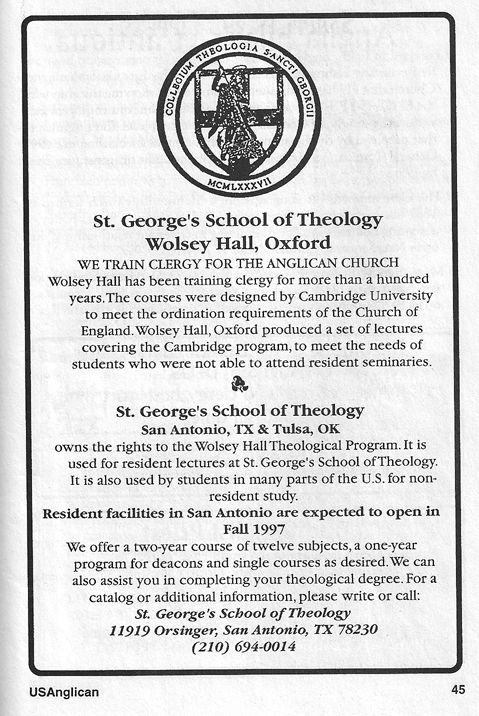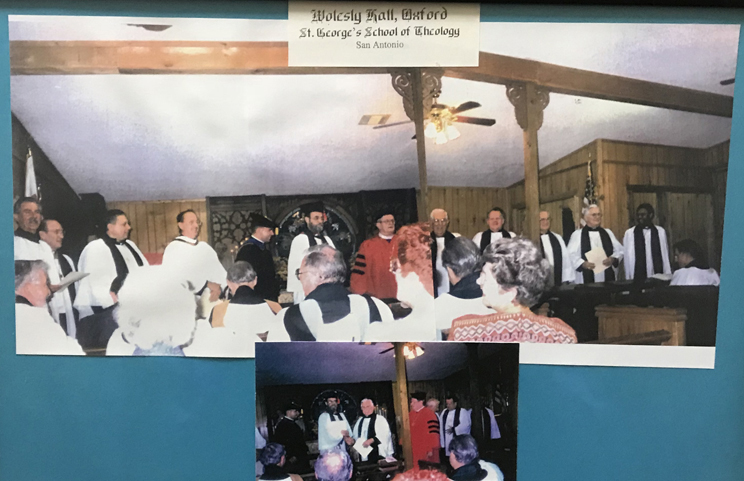|
Pontifical Georgian College The principal theological seminary of
the United Roman-Ruthenian Church FOUNDED BY SAINT EDWIN CAUDILL
Pontifical Georgian College is a private theological institution that serves as the historic and principle seminary of the United Roman-Ruthenian Church. The United Roman-Ruthenian Church is an autocephalous Apostolic Church of ancient origins and Orthodox and Catholic heritage. The Church is in special consultative status with the United Nations Economic and Social Council since 2019. The college serves the needs of the United Roman-Ruthenian Church, conferring ecclesiastical academic honours on behalf of the Church's Apostolic See under the authority of the Diocese of Rome-Ruthenia. The College also fulfills the mandate of service through scientific enquiry and field research. PGC was founded in 1987 as Saint George Theological Seminary and was based in San Antonio, Texas. It is historically affiliated with Rome, Italy, and Oxford, England. From its beginning, the seminary maintained a formal affiliation with Wolsey Hall, Oxford, England, and was the exclusive administrator of the theology programme in the United States. Although the College continues a cordial relationship today, Wolsey Hall no longer offers theology courses. The Evolution of Pontifical Georgian College In
an era where technology has transformed the way we learn, adaptability
and innovation are key to staying relevant. This is precisely why
the Pontifical Georgian College, which once held onsite classes
at physical property in San Antonio, Texas, USA, made the
bold decision some time ago to transition to an online-based model. Also,
having long-since moved away from physical property significantly
reduced operational costs for the College and the Church.
Those cost savings can be redirected into other areas of
need.
The purpose of the college is to ensure excellence in education of the clergy of the United Roman-Ruthenian Church. For this purpose, there are five faculties: Sacred Theology, Sacred Philosophy, Canon Law, History, and Sacred Music. Faculty hold the ranks of Professor, Vice Professor, Deputy Professor, or Instructor, according to qualification, experience, and tenure. The college confers the following academic honours: Diplomate: Conferred in Sacred Theology (S.T.Dip.) and Sacred Philosophy (S.Phil.Dip.). The grade of Diplomate of Sacred Theology signifies successful completion of Minor Seminary. There are two tracks, a general one and one for those concurrently undertaking general baccalaureate education. The Diploma of Sacred Philosophy recognizes basic studies in related fields such as history or sacred music. Licentiate: Conferred in Sacred Theology (S.T.L.), Sacred Philosophy (S.Phil.L.), and Canon Law (J.C.L.). The Licentiate in Sacred Theology or its equivalent is the prerequisite for ordination to the priesthood. The Licentiate of Sacred Philosophy recognizes advanced studies in related fields, while the Licentiate of Canon Law recognizes in-depth knowledge in that field. Doctorate: Conferred in Sacred Theology (S.T.D.), Sacred Philosophy (S.Phil.D.), Canon Law (J.C.D.), and Sacred Letters (S.L.D.). The Doctorate of Sacred Letters is exclusively given as an honourific to recognize laymen who have made significant and outstanding contributions to theology and/or religion. The Doctorate of Sacred Theology is the terminal theological honour and signifies advanced, in-depth knowledge of theology. The Doctorate of Sacred Philosophy recognizes significant achievement in study of related fields. The Doctorate of Canon Law represents mastery of Canon Law. All doctoral honours except for the Doctorate of Sacred Letters require original research and successful defense of a dissertation. Officials and Senior Faculty As the sole purpose of the college is to train clergy of the United Roman-Ruthenian Church, it neither maintains nor seeks any outside accreditation. It is further the policy of both the college and the Church that a theological seminary for the purpose of training clergy is beyond the scope of review of any secular or other outside entity. However, both the college and the Church acknowledge the important role of accreditation in secular and general education. Persons seeking academic honours for the purpose of employment outside the United Roman-Ruthenian Church are encouraged to pursue said education at a general college or university accredited by an organization approved by the US Department of Education or the equilvalent of another country. [United Roman-Ruthenian Church]
|
